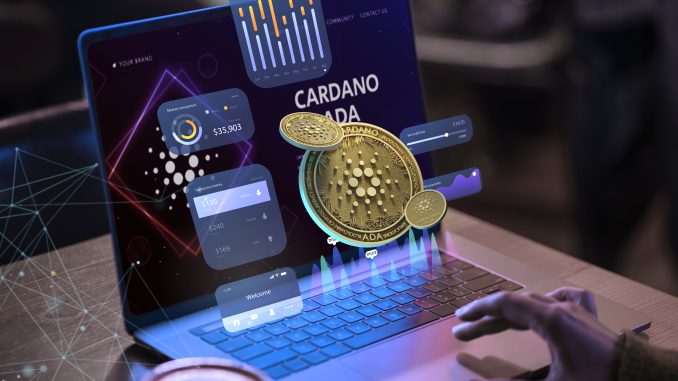
The world of gaming is undergoing a revolutionary transformation with the integration of blockchain technology. Blockchain gaming platforms are disrupting traditional models by offering novel approaches to tokenomics, in-game economies, and monetization strategies. In this article, we explore the intersection of blockchain technology and gaming, shedding light on the innovative opportunities and challenges it presents.
The Rise of Blockchain Gaming
Blockchain technology, best known for powering cryptocurrencies like Bitcoin and Ethereum, is a decentralized ledger system that enables secure and transparent transactions without the need for intermediaries. In the gaming industry, blockchain technology is being leveraged to create decentralized gaming platforms where players have greater ownership and control over their in-game assets.
Tokenomics Models
Tokenomics refers to the economic models governing the issuance, distribution, and circulation of tokens within a blockchain ecosystem. In the context of blockchain gaming, tokens serve as digital assets that players can earn, trade, and utilize within the game environment. There are several tokenomics models employed by blockchain gaming platforms:
- Utility Tokens: These tokens have a specific function within the game ecosystem, such as granting access to premium features, purchasing in-game items, or participating in governance mechanisms.
- Non-Fungible Tokens (NFTs): NFTs are unique digital assets that represent ownership of in-game items, characters, or properties. Unlike fungible tokens like Bitcoin, each NFT is distinct and cannot be replicated, making them valuable collectibles within blockchain games.
- Staking and Governance Tokens: Some blockchain gaming platforms utilize tokens for staking, where players can lock up their tokens to earn rewards or participate in governance decisions related to the development of the game.
Monetization Strategies
Blockchain gaming platforms offer innovative monetization strategies that empower players to earn real value from their gaming experiences. Some of the key monetization methods include:
- Play-to-Earn: In traditional gaming models, players spend money to purchase in-game items or access premium content. In blockchain gaming, players have the opportunity to earn tokens by participating in gameplay, completing tasks, or contributing to the ecosystem. This “play-to-earn” model aligns the interests of players with the success of the game, fostering a more equitable and rewarding gaming experience.
- NFT Marketplaces: Blockchain gaming platforms often feature integrated marketplaces where players can buy, sell, and trade NFTs representing in-game assets. This secondary market allows players to monetize their gaming achievements by selling rare or valuable items to other players.
- Decentralized Finance (DeFi) Integration: Some blockchain gaming platforms incorporate DeFi protocols to enable advanced financial interactions, such as lending, borrowing, and yield farming. Players can leverage their in-game assets as collateral to access liquidity or earn passive income through decentralized lending platforms.
Player Engagement and Community Building
Blockchain gaming platforms prioritize player engagement and community building to create vibrant and sustainable ecosystems. Features such as social gaming experiences, collaborative gameplay, and community-driven content creation foster a sense of belonging and ownership among players. Additionally, transparent governance mechanisms empower players to participate in decision-making processes and shape the direction of the game.
FAQ: Understanding Blockchain Gaming Platforms
Q: What is blockchain gaming?
A: Blockchain gaming refers to video games built on blockchain technology, where players have ownership and control over in-game assets using cryptographic tokens.
Q: How do blockchain gaming platforms utilize tokenomics?
A: Blockchain gaming platforms employ tokenomics models to govern the issuance, distribution, and circulation of tokens within the game ecosystem, including utility tokens, NFTs, and staking/governance tokens.
Q: How do players monetize their gaming experiences on blockchain gaming platforms?
A: Players can monetize their gaming experiences through various methods, such as earning tokens through gameplay (play-to-earn), trading NFTs on integrated marketplaces, and participating in decentralized finance (DeFi) protocols.
Q: What are the benefits of blockchain gaming platforms for players?
A: Blockchain gaming platforms offer players greater ownership and control over their in-game assets, enhanced monetization opportunities, and immersive social gaming experiences.
Q: Are there any challenges associated with blockchain gaming platforms?
A: Challenges include scalability issues, user adoption barriers, regulatory uncertainties, and the need for user-friendly interfaces to onboard non-technical players.
In conclusion, blockchain gaming platforms are reshaping the gaming industry by introducing novel tokenomics models, innovative monetization strategies, and immersive player experiences. As the technology continues to evolve, blockchain gaming has the potential to unlock new levels of creativity, engagement, and economic empowerment for players worldwide.

Leave a Reply